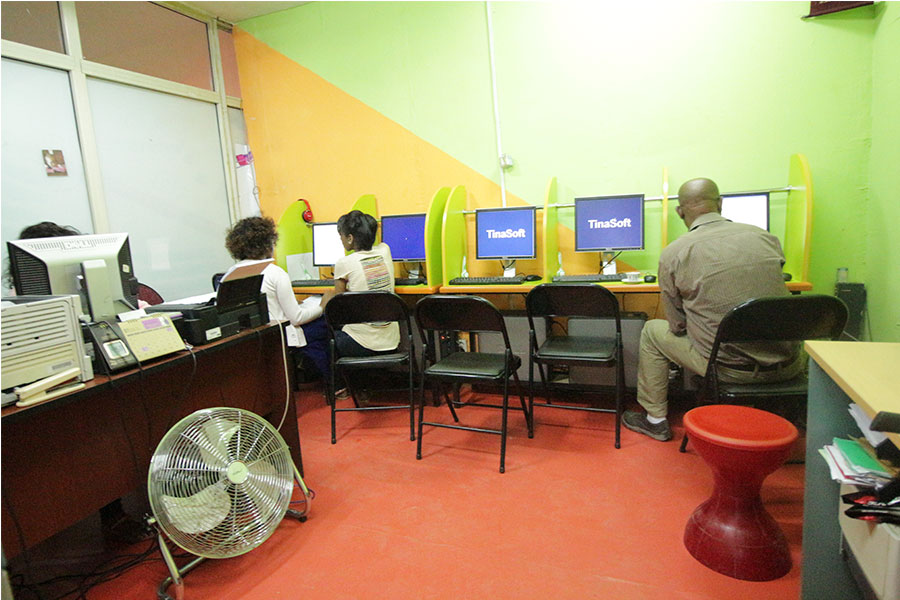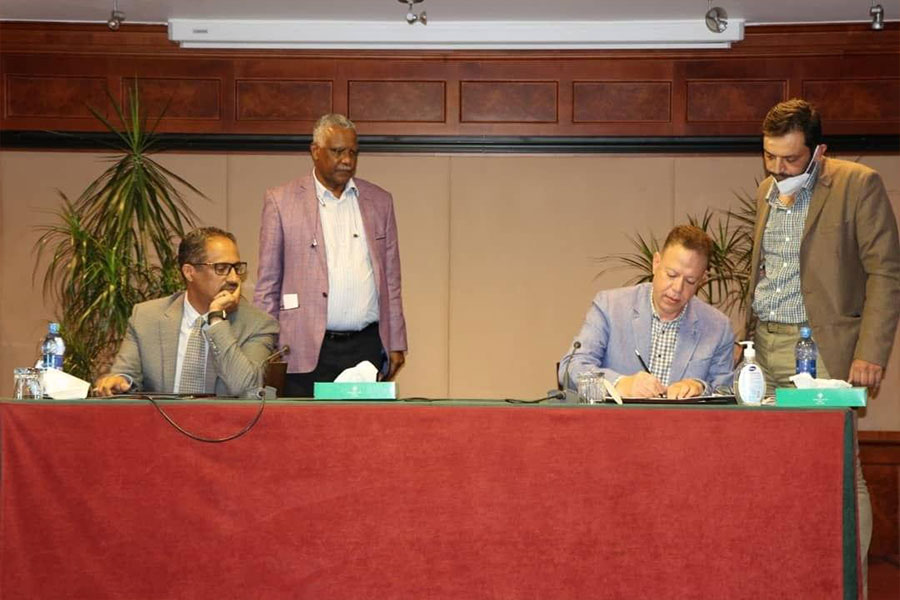
Fortune News | Jun 15,2019
Jul 31 , 2021
By Christian Tesfaye
No country has ever industrialised while remaining food insecure. There are examples of countries such as India that have jumped from an agriculture-based economy to more service-based, without going through the cycles of industrialisation and de-industrialisation that much of the Western world encountered. But even these never managed to do as such without first unlocking the keys to agricultural productivity and food security through the use of new and improved crops and better farming techniques.
Critical to understanding this is a famous late 18th-century theory by Thomas R. Malthus, which he laid out in 'An Essay on the Principle of Population.' Malthusianism asserts that while both population growth and food production would increase going forward, the former would do as such at a much faster rate. The result would be mass starvation.
This was a real fear going into the 20th century, as population growth was becoming exponential. There was a concern that unless the number of people born into the world is significantly reduced, especially in places such as India, they would starve to death as enough food could not be produced to feed them. The planet is finite and arable land is even more so.
A similar fear today is that the result of global warming and population boom in sub-Saharan Africa, including Ethiopia, would lead to too many mouths chasing after small amounts of food. Mass starvation may not happen as Malthus feared, but these countries would be ever more dependent on food aid while their governments subject ever more of their budgets to importing grains such as wheat. These countries cannot industrialise and develop economically because they would have no room to invest in other productive areas of development.
Malthus would have found this argument familiar. Fortunately, his prediction for the world did not come true. He had severely underestimated human ingenuity. Agronomists such as Norman Borlaug came to the rescue, brandishing what came to be known as the Green Revolution. They focused on making farming easier, more reliable and efficient to make each plot of land yield more crops.
Take Mexico, which used dwarf plants, which responded better to fertiliser, made the plant less likely to break and have higher yields. Initiatives by Borlaug and his agronomist colleagues helped Mexico become an agriculture production powerhouse. In 1943, the country imported half of its wheat supply. By 1956, Mexico had become entirely self-sufficient. Eight more years and Mexico was exporting half a million tonnes of wheat annually to food-insecure countries such as Ethiopia. This is not a revolution. It is a miracle.
Borlaug’s work in India was just as transformative. Within three decades, starting from 1961, the country tripled its yields. By the mid-2000s, India was exporting 4.5 million tonnes of rice to the rest of the world. Borlaug had reversed Malthus’ pessimism in one of humankind’s most inspiring stories, saving, by some estimates, at least 600 million lives worldwide that would have been lost had these techniques not been introduced. His Nobel Peace Prize in 1970 was perhaps the most deserving ever awarded.
Ethiopia, and most of Africa, need their own Green Revolution, where the adoption of modern farming techniques and improved seeds has been much slower. Sub-Saharan Africa is the only place in the world where agriculture yields have more or less not improved since the 1960s. The longer this does not change, the longer we will remain poor.
Borlaug’s techniques have their share of controversies, of course. For instance, he was a major advocate of genetically modified organisms (GMOs), which helps farmers grow more resilient crops and have higher yields. It is a politically sensitive issue and poses environmental risks but should not be dismissed out of hand given how instrumental it could be in addressing food insecurity. This is where agronomists, policymakers, and communities should come together to introduce techniques more acceptable to farmers and help them produce better yields even as arable land per person shrinks due to population growth.
Without unlocking this central question of food security, most other endeavours will be for nought.
PUBLISHED ON
Jul 31,2021 [ VOL
22 , NO
1109]


Fortune News | Jun 15,2019

Sunday with Eden | Oct 16,2020

Radar | Aug 12,2023

Radar | Jan 15,2022

Fortune News | Oct 17,2020

Viewpoints | Sep 19,2020

Radar | Mar 14,2020

Radar | Mar 21,2020

Radar | Jun 20,2020

Fortune News | Aug 28,2021

Photo Gallery | 179237 Views | May 06,2019

Photo Gallery | 169433 Views | Apr 26,2019

Photo Gallery | 160336 Views | Oct 06,2021

My Opinion | 137163 Views | Aug 14,2021
Commentaries | Oct 25,2025

Dec 22 , 2024 . By TIZITA SHEWAFERAW
Charged with transforming colossal state-owned enterprises into modern and competitiv...

Aug 18 , 2024 . By AKSAH ITALO
Although predictable Yonas Zerihun's job in the ride-hailing service is not immune to...

Jul 28 , 2024 . By TIZITA SHEWAFERAW
Unhabitual, perhaps too many, Samuel Gebreyohannes, 38, used to occasionally enjoy a couple of beers at breakfast. However, he recently swit...

Jul 13 , 2024 . By AKSAH ITALO
Investors who rely on tractors, trucks, and field vehicles for commuting, transporting commodities, and f...

Oct 25 , 2025
The regulatory machinery is on overdrive. In only two years, no fewer than 35 new pro...

Oct 18 , 2025
The political establishment, notably the ruling party and its top brass, has become p...

Oct 11 , 2025
Ladislas Farago, a roving Associated Press (AP) correspondent, arrived in Ethiopia in...

Oct 4 , 2025
Eyob Tekalegn (PhD) had been in the Governor's chair for only weeks when, on Septembe...

Oct 25 , 2025 . By YITBAREK GETACHEW
Officials of the Addis Abeba's Education Bureau have embarked on an ambitious experim...

Oct 26 , 2025 . By YITBAREK GETACHEW
The federal government is making a landmark shift in its investment incentive regime...

Oct 29 , 2025 . By NAHOM AYELE
The National Bank of Ethiopia (NBE) is preparing to issue a directive that will funda...

Oct 26 , 2025 . By SURAFEL MULUGETA
A community of booksellers shadowing the Ethiopian National Theatre has been jolted b...